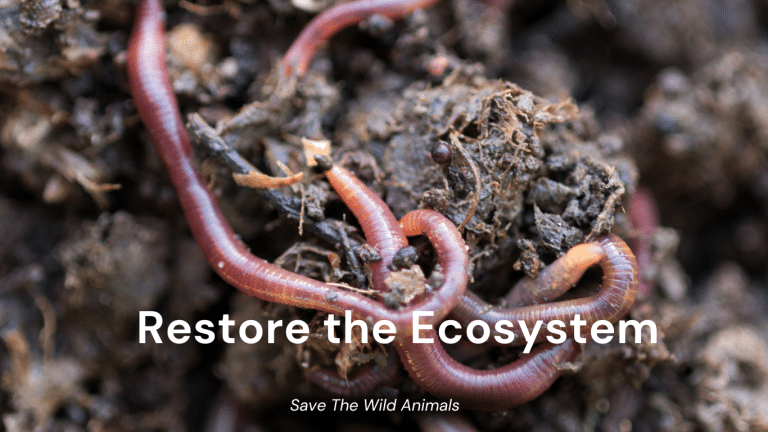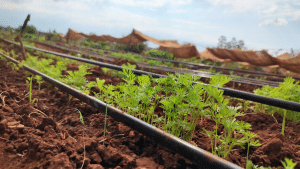
Earthworms play a fundamental role in the ecosystem.
They contribute significantly to soil health, fertility, and the overall function of terrestrial ecosystems. By recycling nutrients, enhancing soil structure, and supporting the growth of plants, earthworms support the wider web of life that includes birds, small mammals, and other organisms that rely on healthy soil ecosystems for survival. Therefore, earthworms are a vital component of biodiversity and an integral part of the natural world.
Earthworms are the unsung heroes, working tirelessly below our feet to ensure the ground above thrives.
Here's a closer look at the scientific intricacies of earthworms and their indispensable role in organic farming:
Scientific Background
Earthworms are segmented worms with a cylindrical body divided into ring-like segments called annuli. They breathe through their skin, requiring a moist environment to facilitate gas exchange. Earthworms are detritivores, feeding on dead and decaying organic matter in the soil, which they convert into nutrient-rich castings (worm poop).
Soil Aeration and Drainage
As earthworms move through the soil, they create a network of burrows. These tunnels allow air to circulate through the soil, promoting aerobic conditions necessary for the survival of many beneficial microorganisms. Moreover, these burrows enhance soil drainage, reducing waterlogging and improving root penetration.
Nutrient Recycling
Earthworms play a pivotal role in breaking down organic matter, such as leaves, dead roots, and animal manure, transforming it into humus, a complex organic substance that is highly nutritious for plants. Their digestive process involves the ingestion of soil and organic matter, which is then broken down in their gut. The excreted castings are rich in nitrogen, phosphorus, potassium, and micronutrients, essential for plant growth.
Enhanced Soil Structure
The activity of earthworms significantly improves soil structure. Their castings act as a natural soil conditioner, binding soil particles together into aggregates (clusters of particles). This aggregation increases soil porosity, making it lighter and more friable, which is ideal for root growth and development. Improved soil structure also enhances water retention capacity, which is beneficial during dry periods
Organic Farming Utilisation
In organic farming, earthworms are invaluable for their ability to naturally enhance soil fertility and structure without the need for synthetic fertilisers or chemicals. To maximise the benefits of earthworms, organic farmers can adopt several practices:
– Cover Cropping and Mulching: Planting cover crops and applying organic mulches provide food and habitat for earthworms, encouraging their proliferation.
– No-Tillage: Minimising soil disturbance preserves earthworm burrows and reduces mortality, maintaining their population and activity.
– Organic Matter Addition: Regularly adding compost, manure, and other organic wastes boosts earthworm food sources, enhancing their population growth and soil processing activities.
– Crop Rotation: Diversifying crops helps maintain soil health and provides a varied diet for earthworms, supporting a diverse and robust population.
– Avoiding Pesticides: Organic farms avoid the use of harmful pesticides that can adversely affect earthworm populations, instead relying on natural pest management strategies.
– Vermicomposting: This is the use of earthworm casting to create compost. The excreted castings are rich in nitrogen, phosphorus, potassium, and micronutrients, essential for plant growth.
By fostering a healthy earthworm population, organic farms benefit from improved soil health, increased nutrient availability, and ultimately, higher crop yields. Earthworms are a key indicator of soil health and fertility, making them an invaluable asset in sustainable agriculture practices.







